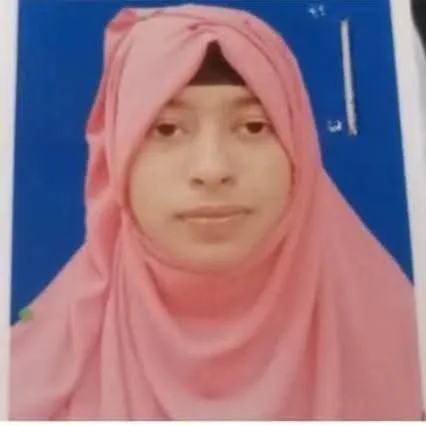The Night They Took Her Life
That night, the girl—Jannati—had dinner and gone to bed like any other day. Her parents were in the adjacent room. Sometime after midnight, they gently woke her up, calling her name softly: “Jannati… Jannati…”
Still drowsy, she rubbed her eyes as they told her to come outside with them. Confused, she asked why they were going out so late, but her parents offered no explanation—just insisted she come along.
Trusting them, as any child would, she didn’t resist. Still half-asleep, she followed them into the darkness.
A short distance from the house, she noticed her aunt—Shahina Begum—was walking with them too. Jannati assumed there was perhaps some urgent family matter. But soon, she noticed they were no longer walking along the usual village path. They were now headed toward the agricultural fields, away from any homes.

Curious, she again asked what they were doing there at that hour. But this time, instead of a reply, she was told to stay quiet.
Eventually, they reached the edge of a cornfield. Just as Jannati turned to ask again, her world turned into a nightmare. Suddenly, someone grabbed her from behind, covering her mouth and holding her tightly to stop her from screaming.
Without warning, blows began raining down on her—iron rods striking her head and body with brutal force.
She tried to run, but the first strikes had already drained her strength. As she collapsed, her own parents and aunt took turns slashing her with a sharp machete. She moaned in pain—barely alive—but they kept going until she was lifeless.
The body was left there, in the cornfield. And they walked away, leaving the girl they had raised and loved—or so the world believed—lying in a pool of her own blood.
This happened on a Saturday.
The next morning, local farmers stumbled upon the horrific scene while tending their crops. Shocked, they rushed to inform her parents. Upon arrival, Jannati’s parents wailed and screamed, putting on a convincing performance of grief.
Later, they filed a police complaint against 27 of their neighbors, accusing them of murdering their daughter. The police acted swiftly, detaining several of the accused and launching an intensive investigation. But the suspects denied involvement, and there was little initial progress.
Two days later, an autopsy was conducted. Some forensic clues pointed the investigation in a new direction. Based on this, the police brought in Jannati’s parents and aunt for questioning.
Even then, they insisted the neighbors were to blame. But the investigators, sensing inconsistencies, pressed further.
Eventually, Shahina Begum broke. She confessed that it was they—the girl’s own family—who had killed her.
Jannati’s parents still tried to deny it, but once their co-conspirator had spoken, they knew the truth would not stay hidden. They too confessed.
The reason? A long-standing land dispute with their neighbors involving 32 bighas of farmland. Shahina Begum allegedly suggested the plan: kill their own daughter and leave her body in the fields, then accuse the neighbors. With the neighbors imprisoned, the family could seize the disputed land.
And so they did. Cold-blooded. Calculated. Cruel.
Officer-in-Charge Md. Habibullah of Kurigram Sadar Police Station verified the confessions, including the chilling details of how the murder was carried out.
Jannati was only 15 years old, a 9th-grade student with a bright future ahead of her. Teachers and classmates described her as intelligent, kind, and full of potential. She was preparing for her SSC exams next year—and likely would have done well.
In a world where countless couples desperately yearn for a child—moving from hospital to hospital in hope—Jannati’s life was cut short by the very people who gave it to her. All for a piece of land.
The village mourns. And the world watches—shaken by how dark the human heart can be.